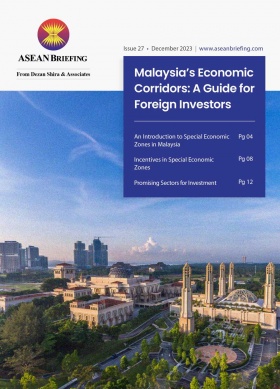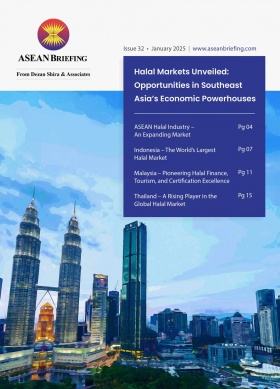Social Security Contributions in Malaysia: A Guide for Foreign Employers and Employees
Malaysia’s social security framework plays a vital role in ensuring financial protection for employees in various stages of their careers. For foreign employers and employees, understanding these contributions is crucial to maintaining compliance and securing benefits under the system.
The key institutions governing social security contributions are the Employees Provident Fund (EPF) and the Social Security Organization (SOCSO). These bodies provide retirement savings, workplace injury protection, and other forms of financial security.
Key institutions: EPF and SOCSO
Employees Provident Fund (EPF) – A mandatory retirement savings scheme where employers and employees contribute a percentage of the employee’s salary. The EPF is designed to provide financial security post-retirement and includes withdrawal options for housing, education, and medical needs.
Social Security Organization (SOCSO) – Also known as PERKESO, SOCSO protects employees against work-related injuries, invalidity, and death. The organization administers various social insurance schemes that offer compensation and medical support in case of accidents or disabilities.
Employee Provident Fund contributions: What employers and employees need to know
Foreign employers hiring in Malaysia must comply with EPF regulations. Contributions are required for most employees, including Malaysian citizens, permanent residents, and certain categories of expatriates.
Contribution rates and calculations
- Employee contribution – Typically ranges from 9 to 11 percent of the employee’s monthly salary, depending on age and earnings.
- Employer contribution – Varies between 12 and 13 percent, with different rates applying to specific employment conditions.
The EPF uses a tiered contribution structure, ensuring that employees at all salary levels contribute proportionally. Employers are responsible for deducting the employee’s share and submitting payments promptly.
Tax benefits and special conditions
EPF contributions offer tax relief for both employers and employees. Employers can deduct contributions as a business expense, while employees benefit from tax deductions on their income tax filings. Exemptions may apply to specific categories of expatriates, depending on work permit classifications and employment contracts.
Social Security Organization Contributions: Coverage and employer responsibilities
SOCSO contributions are mandatory for Malaysian employees and certain categories of foreign employees. This organization provides crucial protection against workplace accidents and long-term disabilities.
Social security contributions for foreign employees
Employers hiring legal foreign workers, including expatriates (but excluding domestic servants), must register them with SOCSO.
Contribution rates and coverage
- Employment injury scheme – Employers contribute 1.25 percent of the insured’s monthly wages.
- Wage ceiling – Effective from October 2024, the wage ceiling for contributions is 6,000 ringgit per month.
Benefits for foreign employees
Foreign employees covered under SOCSO are entitled to:
- Medical benefit
- Temporary and permanent disablement benefits
- Dependents’ benefit
- Funeral benefit
- Constant-attendance allowance
- Rehabilitation services (excluding certain programs)
Registration process for foreign employees
Employers must register their foreign workers through:
- The Automated SOCSO Integrated System (ASSIST) portal.
- Submission of the Foreign Worker Registration Form at the nearest SOCSO office.
Employers need to provide necessary documentation, including copies of employees’ passports, work permits, or entry passes.
Special considerations for foreign employees
Foreign employees face unique circumstances when it comes to social security contributions. Understanding these considerations helps employers navigate compliance obligations effectively.
Work permits and social security eligibility
The requirement for EPF and SOCSO contributions depends on the employee’s work permit category. Some expatriates, particularly those on short-term contracts, may be exempt from mandatory contributions.
Bilateral social security agreements and tax treaties
Malaysia has agreements with certain countries to prevent double social security taxation. These agreements allow expatriates to remain covered under their home country’s system while being exempt from Malaysian social security contributions.
Repatriation and contribution refunds
Expatriates who contribute to EPF may withdraw their savings upon leaving Malaysia. The withdrawal process requires documentation, including proof of departure and termination of employment.
The table below summarizes the key differences between the EPF and SOCSO.
|
Feature |
EPF |
SOCSO |
|
Purpose |
Retirement savings |
Workplace injury & invalidity protection |
|
Employee Contribution |
9%-11% of salary |
Not required for foreign employees |
|
Employer Contribution |
12%-13% of salary |
1.25% of salary (Employment Injury Scheme) |
|
Benefits |
Retirement funds, housing & education withdrawals |
Medical, disability, survivor benefits |
|
Coverage |
Malaysians & eligible expatriates |
All legal foreign workers (excluding domestic servants) |
- Previous Article What Foreigners Need to Know About Taxable Income in Malaysia
- Next Article A Guide to Singapore’s Long-Term Visit Pass








